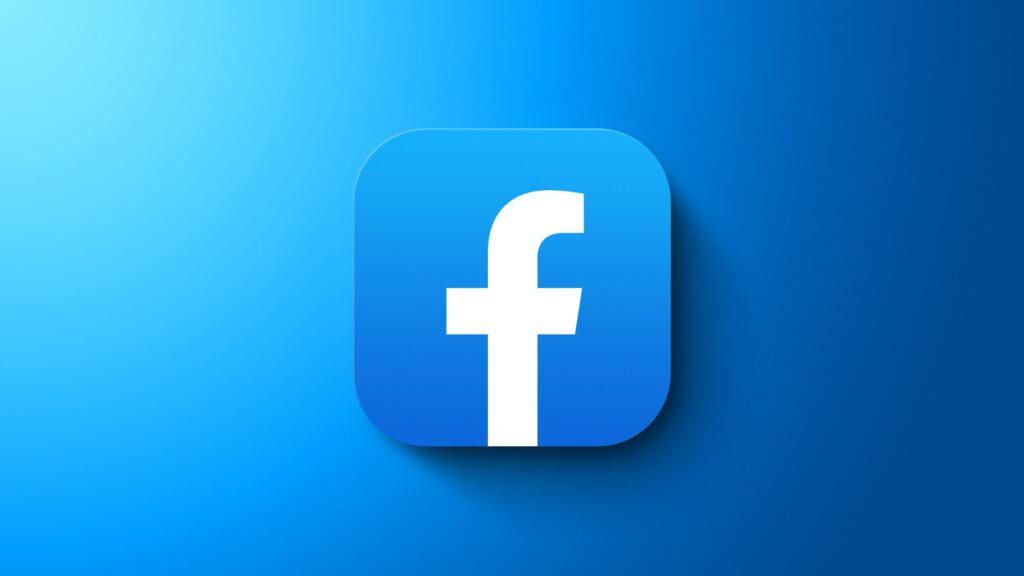For business owners, choosing between outsourcing your marketing to an external marketing agency, or maintaining an in-house team can be a challenging decision. Each option carries its own advantages and disadvantages, making it difficult to determine the best fit for your company.
In this comprehensive article, we will delve into an in-depth comparison of the costs associated with outsourcing versus having an in-house marketing team. By evaluating the various factors and considerations, we aim to provide you with valuable insights that will guide you towards making the optimal choice for your business.
And while of course we are a little bit biased in favor of outsourcing your marketing (since we are a full-service marketing agency after all!), we aim to provide an unbiased and well-rounded analysis of both options.
What is Outsourced Marketing?
Outsourced marketing refers to the practice of hiring external agencies or individuals to handle various marketing tasks on behalf of a company. This strategy allows businesses to tap into the expertise and resources of specialized professionals without having to maintain an in-house marketing team.
Common marketing tasks that are often outsourced include content creation, social media management, search engine optimization (SEO), pay-per-click (PPC) advertising, and email marketing.
Definition of Outsourcing:
Outsourcing is the practice of delegating specific tasks or functions of a business to external service providers instead of handling them internally. It involves hiring third-party experts or agencies to handle various marketing activities on behalf of the company.
Some common marketing tasks that are often outsourced include content creation, social media management, search engine optimization (SEO), pay-per-click (PPC) advertising, graphic design, and market research.
Outsourcing certain marketing functions can provide businesses with access to specialized expertise and resources that may not be available in-house. It allows companies to tap into the skills and knowledge of professionals who are well-versed in the latest industry best practices and trends.
By entrusting these tasks to external experts, businesses can focus on core operations and strategic decision-making.
Benefits of Outsourcing:
- Access to Expertise: By outsourcing marketing tasks, companies can leverage the skills and knowledge of professionals who specialize in specific areas of marketing. These experts stay up-to-date with the latest industry trends and best practices, ensuring that your marketing efforts are effective and efficient.
- Cost Savings: Outsourcing eliminates the need to hire and train full-time marketing staff, which can be a significant cost-saving measure. Companies can choose to pay for specific services as needed, allowing for better budget control.
- Scalability: Outsourcing offers flexibility and scalability, as external agencies can easily adjust their resources to meet your evolving marketing needs. Whether you need to ramp up your marketing efforts during peak seasons or scale back during slower periods, outsourcing allows for easy adaptation.
Drawbacks of Outsourcing:
- Lack of Control: Outsourcing involves entrusting your marketing activities to external parties, which may result in reduced control over the decision-making process. Communication and coordination with the outsourced team become crucial to ensure alignment with your brand and business goals.
- Potential Quality Concerns: While outsourcing offers access to expertise, there can be concerns about the quality of work delivered by external agencies. Thorough research and due diligence are essential to select a reputable agency that aligns with your standards and preferences.
💡 Key Takeaway: Outsourced marketing involves hiring external agencies or individuals to handle various marketing tasks. It offers access to specialized expertise, cost savings, and scalability. However, it may result in reduced control and potential quality concerns.
Common Marketing Tasks Outsourced
Content Creation and Copywriting:
Outsourcing content creation and copywriting can be a cost-effective solution for businesses. Professional freelance writers or content agencies can provide high-quality content tailored to your target audience. They have the experience and expertise to create engaging blog posts, articles, website copy, social media content, and more.
Social Media Management:
Managing social media platforms requires a significant amount of time and effort. By outsourcing social media management, businesses can benefit from expert knowledge and skills in creating and implementing effective social media strategies. This includes content creation, scheduling, community management, and performance tracking.
Search Engine Optimization (SEO):
SEO is crucial for improving visibility and driving organic traffic to your website. Outsourcing SEO tasks to experienced professionals can ensure that your website is optimized for search engines and complies with the latest algorithm updates. This includes keyword research, on-page optimization, link building, and monitoring website analytics.
Pay-Per-Click (PPC) Advertising:
PPC advertising involves creating and managing online ad campaigns, such as Google Ads or social media ads. Outsourcing PPC management to experts can help businesses achieve better ROI by targeting relevant keywords, optimizing ad copy, and monitoring campaign performance.
Graphic Design and Visual Content:
Outsourcing graphic design and visual content creation can save businesses time and resources. Professional designers can create visually appealing graphics, infographics, logos, and other visual assets that align with your brand identity and resonate with your target audience.
💡 Key Takeaway: Outsourcing marketing tasks such as content creation, social media management, SEO, PPC advertising, and graphic design can provide businesses with access to specialized skills and expertise, allowing them to allocate their in-house resources more efficiently.
Advantages and Disadvantages of Outsourcing
Outsourcing marketing functions can offer several advantages to businesses.
Firstly, it allows access to a pool of specialized talent and expertise that may not be available in-house. By collaborating with external marketing agencies or freelancers, companies can tap into a diverse range of skills and knowledge, which can lead to innovative and successful marketing campaigns.
Additionally, outsourcing can provide cost savings by eliminating the need for hiring and training in-house staff, as well as reducing overhead expenses related to office space and equipment.
On the other hand, outsourcing comes with its share of disadvantages.
One potential drawback is the loss of direct control over the marketing activities. When outsourcing, businesses rely on external entities to carry out marketing tasks, which may lead to a disconnect in aligning marketing strategies with overall business goals.
Furthermore, there may be concerns about the security and confidentiality of sensitive company information shared with third-party marketing firms. Businesses must carefully consider these factors and assess the risk-reward trade-off before deciding to outsource their marketing functions.
💡 Key Takeaway: Outsourcing marketing functions can provide access to specialized expertise and cost savings, but it may result in a loss of direct control and potential security risks. Businesses should carefully evaluate these advantages and disadvantages before making a decision.
Pros of Outsourcing:
- Access to Expertise: When you outsource your marketing functions, you gain access to a team of experienced professionals who specialize in different aspects of marketing. These experts have a deep understanding of current industry trends, best practices, and the latest marketing tools and technologies. They can bring fresh insights and innovative strategies to your marketing efforts, helping you stay ahead of the competition.
- Cost Savings: Outsourcing your marketing can be a cost-effective solution compared to maintaining an in-house team. By hiring an agency or freelancers, you eliminate the need for hiring and training new employees, paying salaries, benefits, and overhead costs. Outsourcing allows you to pay only for the specific marketing services you need, making it a flexible and budget-friendly option.
- Scalability and Flexibility: Outsourcing provides scalability and flexibility to meet your changing business needs. Whether you need to ramp up your marketing efforts during peak seasons or scale back during slower periods, an outsourced team can quickly adapt to your requirements. They can easily handle fluctuations in workload and adjust their strategies to align with your business goals.
- Focus on Core Competencies: By outsourcing your marketing functions, you can free up your internal team’s time and resources to focus on your core competencies. Instead of spending valuable time and energy on non-core tasks like marketing, your team can concentrate on activities that drive revenue and growth for your business. Outsourcing allows you to leverage external expertise while keeping your internal team focused on their core responsibilities.
- Objectivity and Fresh Perspective: SB2B Marketing in 2022 ExplainedB2B Marketing in 2022 Explainedometimes, an outsider’s perspective can provide valuable insights and perspectives that an internal team may overlook. Outsourced marketing professionals bring a fresh set of eyes to your business, allowing them to identify new opportunities and provide objective recommendations. They can offer unbiased advice and strategies that can enhance your overall marketing efforts.
💡 Key Takeaway: Outsourcing marketing functions offers several key advantages, including access to specialized expertise, cost savings, scalability and flexibility, focus on core competencies, and objectivity with a fresh perspective. These benefits can help businesses enhance their marketing efforts while optimizing resources and driving growth.
Cons of Outsourcing:
- Lack of Control: When outsourcing marketing functions, you may have limited control over the strategies, processes, and decision-making. The external agency or freelancers may not align perfectly with your brand voice or long-term goals. This can result in miscommunication or a disconnect between the outsourced team and your internal team.
- Communication Challenges: Working with an external team requires effective communication to ensure that goals, expectations, and timelines are clearly understood. However, language barriers, time zone differences, and cultural nuances can hinder smooth communication. This can lead to delays, misunderstandings, and a lack of collaboration.
- Dependency on External Resources: Relying on external resources for your marketing needs means you are dependent on their availability and expertise. If there are issues with the outsourced team, such as delays or turnover of staff, it can disrupt your marketing efforts and have a negative impact on your overall strategy and results.
- Potential Security Risks: Sharing sensitive information with external agencies or individuals comes with inherent security risks. It’s important to thoroughly vet the reputation and security measures of any third-party service providers to ensure the safety of your company’s data and sensitive information.
- Hidden Costs: While outsourcing may initially seem cost-effective, there can be hidden costs that emerge over time. These can include expenses for revisions, additional revisions, and scope creep. Additionally, keeping track of the entire outsourcing process may require hiring additional project management staff or tools, which can add to the overall costs.
💡 Key Takeaway: Outsourcing marketing functions can have potential drawbacks, including a lack of control, communication challenges, dependency on external resources, potential security risks, and hidden costs. It’s crucial to evaluate these cons carefully before deciding whether outsourcing is the right choice for your business.
What is In-House Marketing?
In-house marketing refers to the practice of companies managing and executing their marketing functions internally, utilizing their own resources and employees.
It involves building a dedicated marketing team within the organization to handle all aspects of marketing, including strategy development, campaign planning, content creation, social media management, and analytics.
Common Marketing Tasks In-House
- Strategy Development: In-house marketing teams have a deep understanding of the company’s goals, brand identity, and target audience. They develop marketing strategies aligned with these factors to drive business growth.
- Campaign Planning and Execution: In-house teams plan and execute marketing campaigns across various channels, including digital platforms, print media, events, and more. They have the advantage of being closely connected to other departments within the organization, enabling seamless collaboration and integration of marketing efforts.
- Content Creation: In-house marketing teams create engaging content such as blogs, social media posts, videos, and infographics to attract and retain customers. They possess in-depth knowledge of the company’s products or services, enabling them to produce content that resonates with the target audience.
- Social Media Management: In-house teams handle social media platforms, managing accounts, posting content, engaging with followers, and monitoring analytics. This allows for better control over brand voice, messaging, and customer interactions.
- Analytics and Reporting: In-house marketers analyze data from different marketing campaigns, track key performance indicators, and provide insights to inform future strategies. They utilize tools and platforms to measure the effectiveness of marketing efforts and adjust tactics accordingly.
Advantages and Disadvantages of In-House Marketing
Pros of In-House Marketing:
- Control and Alignment: In-house teams have a deep understanding of the company’s goals and can align marketing strategies with overall business objectives.
- Flexibility: Immediate response to changing market conditions and the ability to quickly adapt to emerging trends.
- Brand Knowledge: In-house marketers have a comprehensive understanding of the brand’s unique value proposition and can effectively communicate it to the target audience.
Cons of In-House Marketing:
- Limited Expertise: In-house teams may lack specialized skills and expertise required for certain marketing functions, such as SEO, graphic design, or advanced analytics.
- Resource Constraints: Allocating sufficient resources, including budget, manpower, and technology, may pose challenges for in-house teams.
- Creativity and Fresh Perspective: In-house teams might become comfortable with their existing strategies, limiting their ability to think outside the box and explore new marketing ideas.
Advantages and Disadvantages of In-House Marketing:
Advantages:
- Control and Alignment: With an in-house marketing team, you have complete control over the strategies, messages, and execution of your marketing campaigns. This allows for better alignment with your overall business goals and brand identity.
- Internal Knowledge: In-house teams have an inherent understanding of the company’s products, services, and target audience. They can leverage this knowledge to create tailored marketing campaigns that resonate with customers.
- Immediate Response: In-house teams can respond quickly to marketing opportunities or changes in the market. There’s no need to wait for external agencies to make adjustments, allowing for more agility and timely decision-making.
- Collaboration: In-house teams have the advantage of working closely with other departments within the company. This collaboration can lead to a more integrated marketing approach, with seamless coordination between marketing, sales, and other teams.
Disadvantages:
- Limited Expertise: In-house teams may lack specialized skills or industry expertise that an external agency can provide. This can be particularly challenging when it comes to emerging technologies, digital marketing trends, or niche markets.
- Cost of Resources: Building and maintaining an in-house team can be costly. You’ll need to invest in hiring, training, salaries, benefits, and marketing tools/software. The expense of recruiting and retaining top talent adds up over time.
- Creativity and Innovation: In-house teams may face limitations in terms of fresh perspectives and new ideas. Collaborating solely within one organization can lead to a narrower range of creative solutions and potential biases.
- Time Constraints: In-house teams may struggle to balance their marketing responsibilities with other tasks and projects within the company. This can lead to stretched resources and potential delays in implementing marketing campaigns.
💡 Key Takeaway: In-house marketing offers benefits such as control, internal knowledge, immediate response, and collaboration. However, it also has drawbacks, including limited expertise, high resource costs, potential creative limitations, and time constraints.
Comparing Costs of Outsourcing vs. In-House Marketing
When it comes to marketing, businesses have two main options: outsourcing their marketing functions or maintaining an in-house marketing team. Each option comes with its own set of advantages and disadvantages, but one crucial aspect to consider is the cost implications.
If you are looking for an article comparing the various factors that impact the cost of hiring a marketing agency, we’ve already written one!
Financial Costs:
Outsourcing:
One of the primary reasons businesses choose to outsource their marketing is the potential for cost savings. By hiring an external agency or freelancer, companies can save on expenses such as salaries, benefits, and training costs associated with an in-house team. Additionally, outsourcing allows for flexibility in budget allocation as businesses can scale their marketing efforts based on their needs and financial capabilities.
In-House:
On the other hand, maintaining an in-house marketing team involves direct financial investments. Businesses need to budget for employee salaries, benefits, and ongoing training and development to ensure their team has the necessary skills and expertise. There may also be additional costs associated with purchasing and maintaining marketing tools and software.
Time Costs:
Outsourcing:
Another aspect to consider is the time factor. Outsourcing marketing tasks can save valuable time that businesses can allocate to other core areas of their operations. By leveraging the expertise of external professionals, businesses can streamline their marketing processes and achieve results more efficiently.
In-House:
However, with an in-house team, businesses have greater control over their marketing activities and can react quickly to changing market conditions. Having a dedicated team within the organization allows for more immediate collaboration and decision-making, which can be advantageous in certain situations.
Quality Costs:
Outsourcing:
Choosing to outsource marketing functions often comes with the benefit of accessing specialized skills and industry expertise. External agencies or freelancers bring a depth of knowledge and experience that may not be available within the organization. This can lead to higher quality marketing strategies and campaigns, ultimately yielding better results and return on investment.
In-House:
Conversely, maintaining an in-house team provides greater control over the quality of work produced. The team members have a deeper understanding of the company’s values, products, and target audience. They also have the advantage of being immersed in the organization’s culture, which can contribute to better brand consistency and messaging.
💡 Key Takeaway: When comparing the costs of outsourcing versus in-house marketing, businesses need to carefully evaluate their budgetary constraints, time availability, and desired level of expertise. While outsourcing may offer cost savings and access to specialized skills, in-house teams provide greater control and potential for alignment with the organization’s
Financial Costs of Outsourcing vs. “Insourcing” Explained
When it comes to comparing the costs of outsourcing marketing functions versus maintaining an in-house team, financial factors play a significant role. With outsourcing, there are several financial considerations to keep in mind.
Lower Operational Costs:
Outsourcing marketing tasks can often be more cost-effective compared to hiring and maintaining an in-house marketing team. When you outsource, you eliminate the need for employee salaries, benefits, training, and other related expenses. This can result in significant savings for businesses, especially smaller ones with limited budgets.
Flexibility in Budgeting:
Outsourcing allows you to have a more predictable and controllable budget as you can negotiate fixed fees or contract-based arrangements. This eliminates the fluctuations and uncertainties associated with in-house teams where costs can vary due to recruitment, training, and other operational expenses.
Access to Specialized Talent:
By outsourcing, you gain access to a pool of specialized marketing professionals who possess the expertise and skills needed for specific marketing tasks. This saves you from spending on extensive training programs or hiring costly consultants for niche areas.
On the other hand, in-house marketing comes with its own set of financial costs.
High Recruitment and Training Expenses:
Hiring and training a competent in-house marketing team can be costly. It involves advertising job openings, conducting interviews, onboarding, and continuous training programs to keep the team up-to-date with the latest marketing techniques and strategies.
Overhead Expenses:
In-house marketing requires setting up and maintaining a physical workspace, providing necessary equipment, software licenses, and other resources. These overhead expenses can add up over time.
Cost of Mistakes:
In-house teams might experiment with different campaigns or strategies, which can lead to costly mistakes. These mistakes can include ineffective advertising or failed marketing campaigns that do not generate the desired ROI.
It is essential to carefully consider these financial costs before deciding whether to outsource or maintain an in-house marketing team.
💡 Key Takeaway: When comparing financial costs, outsourcing marketing functions can often provide cost savings through lower operational costs, flexibility in budgeting, and access to specialized talent. In-house marketing, in contrast, entails expenses related to recruitment, training, overhead costs, and the potential cost of mistakes.
Time Costs of Outsourcing vs. “Insourcing” Explained
There are also time-related costs to consider when comparing outsourcing vs. in-house marketing.
Delayed Communication:
When outsourcing marketing tasks, there may be delays in communication due to different time zones or language barriers. This can lead to longer turnaround times for projects and hinder the speed at which campaigns are executed.
Onboarding and Training:
When opting for outsourcing, there is an initial investment of time required to onboard and train the external team. This includes providing them with all the necessary information, guidelines, and tools to ensure they understand your brand and objectives.
Coordination and Project Management:
Managing outsourced projects requires coordination and constant communication with the external team. This can take time away from your in-house team as they handle the back-and-forth discussions, revisions, and updates.
Lags in Workflow:
Depending on the efficiency and responsiveness of the outsourced team, there may be delays in the workflow. This may result in missed deadlines or a slower pace of completing tasks compared to an in-house team that is readily available.
Integration and Collaboration:
Outsourcing marketing functions may require seamless integration of the external team’s efforts with the in-house team. This process of collaboration, coordination, and aligning strategies can take time and effort to ensure smooth operations.
💡 Key Takeaway: While outsourcing marketing tasks can bring benefits, such as expertise and cost savings, there are time costs associated with delays in communication, onboarding, coordination, workflow lags, and collaboration efforts. These factors need to be considered when weighing the effectiveness of outsourcing versus maintaining an in-house team.
Quality Costs of Outsourcing vs. “Insourcing” Explained
When it comes to comparing the costs of outsourcing marketing versus maintaining an in-house team, one crucial factor to consider is the quality costs. These costs refer to the expenses associated with ensuring the quality of the marketing efforts.
Training and Skill Development:
Outsourcing your marketing functions may save you from the initial training costs as you partner with experts who already possess the required skills and knowledge. On the other hand, with an in-house team, you have the opportunity to invest in training programs tailored to your specific business needs, which can enhance the quality of their work over time.
Control and Oversight:
One of the advantages of having an in-house marketing team is the ability to have direct control and oversight over every aspect of your marketing campaigns. This level of control allows you to closely monitor the quality of work being produced. However, when you outsource, you may have less direct control over the execution and quality of the marketing efforts.
Long-term Relationship Building:
Building long-term relationships with clients and customers is vital for the success of any business. With an in-house team, you have the opportunity to foster these relationships consistently, resulting in higher customer satisfaction and loyalty. Outsourcing may pose challenges in achieving the same level of rapport and understanding with your target audience, as external agencies may not have the same level of familiarity with your brand.
💡 Key Takeaway: Quality costs in marketing include factors such as training, control, and long-term relationship building. While outsourcing may save initial training costs, investing in the skills of an in-house team can lead to higher quality work. However, it’s essential to carefully manage the risks associated with compromised quality when outsourcing.
Conclusion
For numerous businesses, outsourcing marketing functions can present a more economical alternative to maintaining an in-house team. By leveraging the expertise of external professionals, companies can tap into a wider range of skills and experience without the need for extensive training or hiring costs.
Additionally, outsourcing allows businesses to access specialized marketing tools and technologies that may be too expensive to implement in-house.
By offloading administrative tasks to the external team, companies can reduce their administrative expenses and focus more on strategic initiatives.














































